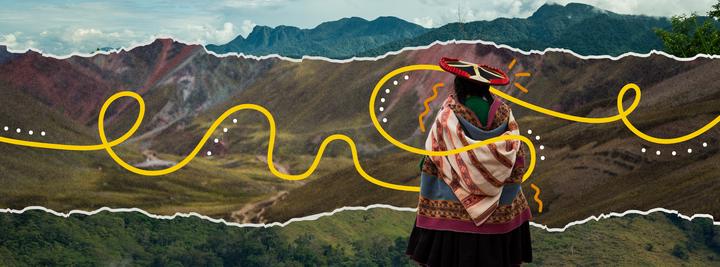Quechua Voices
 Photo by Elwin
Photo by ElwinWhat is Quechua Voices?
The Quechua Puneño (que:Punu Qichwa), is a dialect of the Cuzco-Collao Quechua language, spoken in southern Peru, mainly in the Puno region, where the 40.6% of the population uses it as a first language. The Quechua Puneño is identified with the GlottologID puno1238 and the ISO 639-3 QXP. However, its use is only limited to oral communication. For instance, the Quechua language is not taught as a subject of instruction in education, and it is mainly used in agricultural and cultural contexts or chit-chat. That means that the language it is not written or read anywhere, and no resources are produced nor found accessible. The availability of linguistics resources is nowadays more urgent in order to save a language and its community.
To overcome the lack of resources and support a harmonization process of the Quechua language, we have created a structured knowledge base for the Quechua language, called Qichwabase (a Wikibase instance). It contains over 1 million statements about Quechua words and their usage, and translations of Quechua words into other languages, e.g. English, German, Italian, and Spanish. Besides, it contains over 20 Quechua variant vocabularies. Our objective is to record the voices of the Quechua Collao vocabulary in various age ranges, and make the recordings available on Wikimedia Commons. So, the Quechua speakers, quechua learners, teachers, students, and ultimately scientists can build projects on top of it. For instance, the recordings can be used for the production of Open Educational Resources in mother tongues.
Our Mission:
- Record the voices of Quechua Collao speakers across different age groups.
- Make these recordings openly available for anyone to use.
- Empower educators, learners, and researchers to develop Quechua Collao learning materials.
What We Will Do:
- Leverage the existing Qichwabase, a vast knowledge base of Quechua Collao words and translations.
- Partner with Nuñoa communities to record speakers with diverse backgrounds. Utilize the user-friendly LinguaLibre tool to capture high-quality audio.
- Upload the recordings on Wikimedia Commons, ensuring global accessibility.
How You Can Help:
- Donate: Every contribution helps us acquire equipment, materials, and travel to Nuñoa, Peru. Online via PayPal
- Spread the Word: Share this call to action with your friends, family, and social networks.
- Volunteer Your Skills: We are seeking volunteers with expertise in Quechua language, linguistics, or audio recording.
Together, we can ensure the Quechua Puneño language survives and thrives!
